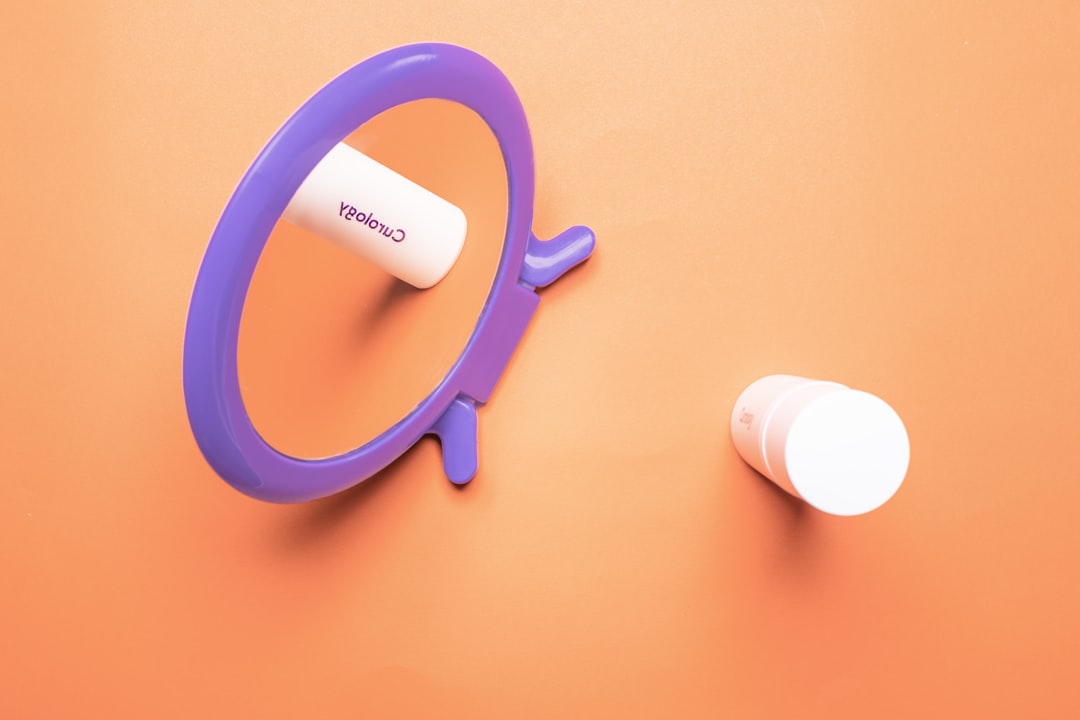
Top Leaky Gut Supplements: Healing Your Gut Naturally
Leaky gut syndrome is a condition that has gained attention in recent years due to its impact on overall health and well-being. The gut plays a crucial role in our overall health, as it is responsible for the digestion and absorption of nutrients, as well as the elimination of waste products. When the lining of the gut becomes compromised, it can lead to a condition known as leaky gut syndrome. This article will provide an in-depth look at leaky gut syndrome, including its causes, symptoms, and diagnosis. Additionally, we will explore the role of supplements in healing leaky gut naturally and discuss the benefits of probiotics, essential nutrients, herbs and botanicals, digestive enzymes, omega-3 fatty acids, glutamine, and prebiotics for gut health.
Key Takeaways
- Leaky Gut Syndrome is caused by a weakened intestinal lining, leading to inflammation and increased permeability.
- Supplements can aid in healing Leaky Gut naturally by reducing inflammation and supporting gut health.
- Probiotics can benefit Leaky Gut by restoring healthy gut bacteria and reducing inflammation.
- Essential nutrients like vitamins, minerals, and amino acids are crucial for gut health and can be obtained through a balanced diet or supplements.
- Herbs and botanicals with anti-inflammatory and antioxidant properties can help reduce inflammation and support gut health.
Understanding Leaky Gut Syndrome: Causes, Symptoms, and Diagnosis
Leaky gut syndrome, also known as increased intestinal permeability, is a condition in which the lining of the small intestine becomes damaged and allows undigested food particles, toxins, and bacteria to leak into the bloodstream. This can trigger an immune response and lead to inflammation throughout the body. There are several factors that can contribute to the development of leaky gut syndrome, including a poor diet high in processed foods and sugar, chronic stress, certain medications (such as nonsteroidal anti-inflammatory drugs and antibiotics), and imbalances in gut bacteria.
The symptoms of leaky gut syndrome can vary from person to person but may include digestive issues such as bloating, gas, diarrhea or constipation, food sensitivities or allergies, fatigue, joint pain, skin problems (such as acne or eczema), and mood disorders (such as anxiety or depression). It is important to note that these symptoms can also be indicative of other health conditions, so it is essential to consult with a healthcare professional for an accurate diagnosis.
Diagnosing leaky gut syndrome can be challenging, as there is no specific test available. However, healthcare professionals may use a combination of medical history, symptoms, and laboratory tests to make a diagnosis. These tests may include blood tests to check for markers of inflammation, food sensitivity testing, stool analysis to assess gut health and the presence of pathogens, and intestinal permeability tests.
The Role of Supplements in Healing Leaky Gut Naturally
Supplements can play a crucial role in healing leaky gut naturally by providing the body with the necessary nutrients and support to repair the damaged gut lining. They can help reduce inflammation, support the growth of beneficial gut bacteria, and promote overall gut health. It is important to note that supplements should not be used as a substitute for a healthy diet and lifestyle but can be used as an adjunct therapy to support gut healing.
There are several types of supplements that can be beneficial for leaky gut syndrome. These include probiotics, essential nutrients (such as vitamins, minerals, and amino acids), herbs and botanicals, digestive enzymes, omega-3 fatty acids, glutamine, and prebiotics. Each of these supplements works in different ways to support gut health and promote healing.
Probiotics are beneficial bacteria that can help restore the balance of gut bacteria and improve overall gut health. They can help reduce inflammation, strengthen the gut lining, and support immune function. There are several types of probiotics available, including Lactobacillus acidophilus, Bifidobacterium bifidum, and Saccharomyces boulardii. It is important to choose a high-quality probiotic supplement that contains a variety of strains and has been tested for potency and purity.
Probiotics for Leaky Gut: Types, Benefits, and Dosages
| Probiotic Strain | Benefits | Dosage |
|---|---|---|
| Lactobacillus acidophilus | Reduces inflammation, improves digestion | 1-2 billion CFUs per day |
| Bifidobacterium bifidum | Strengthens gut barrier, reduces bloating | 1-2 billion CFUs per day |
| Lactobacillus plantarum | Reduces gut permeability, improves immune function | 10-20 billion CFUs per day |
| Saccharomyces boulardii | Reduces diarrhea, improves gut health after antibiotics | 5-10 billion CFUs per day |
Probiotics are live bacteria and yeasts that are good for your health, especially your digestive system. We usually think of bacteria as something harmful, but your body is full of bacteria, both good and bad. Probiotics are often called “good” or “friendly” bacteria because they help keep your gut healthy.
There are many different types of probiotics, but the most common ones are Lactobacillus and Bifidobacterium. These two types of bacteria are found in many fermented foods, such as yogurt and sauerkraut. They can also be taken as supplements.
Probiotics have been shown to have many benefits for gut health. They can help restore the natural balance of bacteria in your gut, which can be disrupted by things like antibiotics or a poor diet. They can also help reduce inflammation in the gut and improve digestion. Some studies have even shown that probiotics can help treat conditions like irritable bowel syndrome (IBS) and inflammatory bowel disease (IBD).
The dosage of probiotics for leaky gut can vary depending on the specific strain and formulation. It is best to follow the instructions on the product label or consult with a healthcare professional for personalized recommendations. It is also important to note that probiotics are generally safe for most people, but some individuals may experience mild digestive symptoms when first starting a probiotic supplement. These symptoms usually subside after a few days as the body adjusts to the new bacteria.
Essential Nutrients for Gut Health: Vitamins, Minerals, and Amino Acids
Essential nutrients play a crucial role in maintaining gut health and supporting the healing process in leaky gut syndrome. These nutrients include vitamins, minerals, and amino acids, which are essential for various bodily functions.
Vitamins such as vitamin A, vitamin D, vitamin E, and vitamin C are important for gut health. Vitamin A helps maintain the integrity of the gut lining and supports immune function. Vitamin D plays a role in regulating immune responses and reducing inflammation in the gut. Vitamin E is an antioxidant that helps protect the gut lining from damage. Vitamin C is involved in collagen synthesis, which is important for maintaining the structure and integrity of the gut lining.
Minerals such as zinc, magnesium, and selenium are also important for gut health. Zinc is involved in the repair and maintenance of the gut lining and supports immune function. Magnesium helps relax the muscles of the digestive tract and promotes regular bowel movements. Selenium is an antioxidant that helps protect the gut lining from oxidative damage.
Amino acids, which are the building blocks of proteins, are essential for gut health. Glutamine is an amino acid that plays a crucial role in maintaining the integrity of the gut lining. It helps repair damage to the gut lining and supports the growth of new cells. Other amino acids, such as arginine and glycine, also play a role in gut health by supporting immune function and reducing inflammation.
Herbs and Botanicals for Leaky Gut: Anti-inflammatory and Antioxidant Properties
Herbs and botanicals have been used for centuries in traditional medicine systems to support gut health and promote healing. Many herbs and botanicals have anti-inflammatory and antioxidant properties, which can help reduce inflammation in the gut and protect the gut lining from damage.
Some herbs and botanicals that have been studied for their potential benefits in leaky gut syndrome include turmeric, ginger, licorice root, slippery elm bark, marshmallow root, and aloe vera. These herbs contain compounds that have been shown to reduce inflammation, soothe the digestive tract, and support gut healing.
Turmeric contains a compound called curcumin, which has potent anti-inflammatory properties. It has been shown to reduce inflammation in the gut and protect the gut lining from damage. Ginger also has anti-inflammatory properties and can help reduce inflammation in the gut.
Licorice root contains compounds that have been shown to reduce inflammation in the gut and support gut healing. Slippery elm bark and marshmallow root are mucilaginous herbs that can help soothe the digestive tract and protect the gut lining from damage. Aloe vera has been used for centuries to support gut health and promote healing. It contains compounds that have anti-inflammatory and antioxidant properties and can help reduce inflammation in the gut.
Digestive Enzymes for Leaky Gut: Types, Benefits, and Side Effects
Digestive enzymes are substances that help break down food into smaller molecules that can be absorbed by the body. They are produced by the body and are also found in certain foods and supplements. Digestive enzymes can be beneficial for leaky gut syndrome by improving digestion and reducing stress on the gut.
There are several types of digestive enzymes that can be beneficial for leaky gut syndrome, including proteases, lipases, and amylases. Proteases help break down proteins into amino acids, lipases help break down fats into fatty acids, and amylases help break down carbohydrates into simple sugars.
The benefits of digestive enzymes for leaky gut include improved digestion, reduced bloating and gas, and decreased inflammation in the gut. They can also help relieve symptoms such as diarrhea or constipation.
It is important to note that digestive enzymes are generally safe for most people when taken as directed. However, some individuals may experience mild digestive symptoms such as bloating or diarrhea when first starting a digestive enzyme supplement. These symptoms usually subside after a few days as the body adjusts to the enzymes.
Omega-3 Fatty Acids for Gut Health: Sources, Benefits, and Dosages
Omega-3 fatty acids are a type of polyunsaturated fat that is essential for overall health, including gut health. They are found in fatty fish such as salmon, mackerel, and sardines, as well as in walnuts, flaxseeds, chia seeds, and hemp seeds. Omega-3 fatty acids have been shown to have numerous benefits for gut health.
The benefits of omega-3 fatty acids for gut health include reducing inflammation in the gut, supporting the growth of beneficial gut bacteria, and improving the integrity of the gut lining. They can also help relieve symptoms of inflammatory bowel disease (IBD) and irritable bowel syndrome (IBS).
The dosage of omega-3 fatty acids for gut health can vary depending on individual needs and health conditions. It is best to consult with a healthcare professional for personalized recommendations. It is also important to choose a high-quality omega-3 supplement that has been tested for purity and potency.
Glutamine for Leaky Gut: How It Works and What to Expect
Glutamine is an amino acid that plays a crucial role in maintaining the integrity of the gut lining. It is involved in the repair and maintenance of the gut lining and supports the growth of new cells. Glutamine has been shown to be beneficial for leaky gut syndrome by reducing inflammation in the gut and promoting gut healing.
When taking glutamine for leaky gut, it is important to follow the recommended dosage guidelines. The dosage can vary depending on individual needs and health conditions. It is best to consult with a healthcare professional for personalized recommendations.
When taking glutamine for leaky gut, it is important to be patient and consistent. It may take several weeks or months to see noticeable improvements in symptoms. It is also important to continue following a healthy diet and lifestyle to support gut healing.
Prebiotics for Leaky Gut: Sources, Benefits, and Dosages
Prebiotics are a type of fiber that serves as food for beneficial gut bacteria. They are found in certain foods such as onions, garlic, leeks, asparagus, bananas, and oats. Prebiotics can be beneficial for leaky gut syndrome by promoting the growth of beneficial gut bacteria and improving overall gut health.
The benefits of prebiotics for leaky gut include reducing inflammation in the gut, supporting the growth of beneficial gut bacteria, and improving digestion. They can also help relieve symptoms such as bloating, gas, and constipation.
The dosage of prebiotics for leaky gut can vary depending on individual needs and health conditions. It is best to consult with a healthcare professional for personalized recommendations. It is also important to gradually increase the intake of prebiotic-rich foods or supplements to avoid digestive symptoms such as bloating or gas.
Combining Supplements for Optimal Gut Health: Tips and Recommendations
When it comes to combining supplements for optimal gut health, it is important to take a holistic approach and consider the individual’s specific needs and health conditions. Here are some tips and recommendations for combining supplements for optimal gut health:
1. Start with a high-quality probiotic supplement that contains a variety of strains and has been tested for potency and purity. This will help restore the balance of gut bacteria and improve overall gut health.
2. Consider adding essential nutrients such as vitamins, minerals, and amino acids to support gut healing. These can be obtained through a healthy diet or through supplementation if necessary.
3. Incorporate herbs and botanicals with anti-inflammatory and antioxidant properties into your routine. These can help reduce inflammation in the gut and protect the gut lining from damage.
4. Consider adding digestive enzymes to improve digestion and reduce stress on the gut. This can be especially beneficial for individuals with digestive issues such as bloating, gas, or constipation.
5. Include omega-3 fatty acids in your diet or through supplementation to support gut health. These can help reduce inflammation in the gut and improve the integrity of the gut lining.
6. Consider adding glutamine to your routine to support gut healing. This amino acid plays a crucial role in maintaining the integrity of the gut lining and promoting gut healing.
7. Include prebiotic-rich foods or supplements to promote the growth of beneficial gut bacteria and improve overall gut health.
It is important to note that everyone’s needs and health conditions are different, so it is best to consult with a healthcare professional for personalized recommendations.
In conclusion, gut health plays a crucial role in our overall health and well-being. Leaky gut syndrome is a condition that can have a significant impact on gut health and can lead to various symptoms and health issues. However, with the right approach and the use of supplements, it is possible to heal leaky gut naturally and promote optimal gut health.
Supplements such as probiotics, essential nutrients, herbs and botanicals, digestive enzymes, omega-3 fatty acids, glutamine, and prebiotics can all play a role in supporting gut healing and promoting overall gut health. It is important to choose high-quality supplements that have been tested for purity and potency and to follow the recommended dosage guidelines.
In addition to supplements, it is also important to follow a healthy diet and lifestyle to support gut healing. This includes eating a balanced diet rich in whole foods, reducing stress levels, getting regular exercise, and getting enough sleep.
By taking action to support optimal gut health, we can improve our overall well-being and reduce the risk of various health issues. It is never too late to start prioritizing gut health and taking steps towards healing leaky gut naturally.
FAQs
What is leaky gut syndrome?
Leaky gut syndrome is a condition where the lining of the small intestine becomes damaged, allowing toxins, bacteria, and undigested food particles to leak into the bloodstream.
What are the symptoms of leaky gut syndrome?
Symptoms of leaky gut syndrome include bloating, gas, cramps, food sensitivities, fatigue, joint pain, skin rashes, and autoimmune disorders.
What are the best leaky gut supplements?
The best leaky gut supplements include probiotics, digestive enzymes, L-glutamine, collagen, and omega-3 fatty acids.
How do probiotics help with leaky gut syndrome?
Probiotics help to restore the balance of good bacteria in the gut, which can help to reduce inflammation and improve gut health.
What are digestive enzymes and how do they help with leaky gut syndrome?
Digestive enzymes are enzymes that help to break down food in the digestive system. They can help to improve digestion and reduce inflammation in the gut.
What is L-glutamine and how does it help with leaky gut syndrome?
L-glutamine is an amino acid that helps to repair the lining of the gut and reduce inflammation.
What is collagen and how does it help with leaky gut syndrome?
Collagen is a protein that helps to support the structure of the gut lining and reduce inflammation.
How do omega-3 fatty acids help with leaky gut syndrome?
Omega-3 fatty acids help to reduce inflammation in the gut and improve gut health. They can be found in fish oil supplements.

















